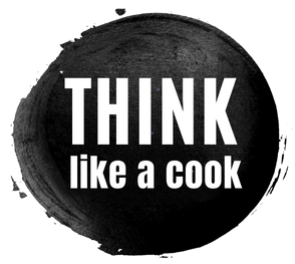Stuffed but starving?

When food drains you out instead of filling you up
We all know food is nourishment. Or at least it's supposed to be.
But did you know that food can also deplete you?
It's a simple and kind of obvious concept once you think about it, but it never occurred to me until I learned about the 'nutrient gap' in my nutrition studies.
In our culture we tend to think of food mostly in calories (more about this simplistic concept on another day), but there is so much more to it!
Consider this: The body is a huge chemical factory, with multiple chemical reactions taking place every second in every single cell of our body (the cells of the human body are estimated at 30 trillion - you do the math...)
A chemical reaction means molecules reacting with each other; molecules like vitamins, minerals, enzymes, and all the other compounds we get from our food.
These nutrient molecules are being used all the time for absolutely everything that happens in the body (i.e. the astronomical number of chemical reactions firing incessantly to keep us alive).
If those molecules are not present in the right form, in the right amount and at the right place then the body will either draw the necessary molecules from elsewhere (according to an inbuilt 'sense' of priorities) or the specific reaction may not happen at all or happen 'under duress' in a way that's not quite as intended (which could mean it becomes damaging to the body).
When we imagine food simply as calories that the body 'burns' for energy we forget that in order for that calorie to be burned and used, the body needs to use up nutrient molecules (not to mention the molecules needed to extract that calorie from the food in the first place).
Nourishing food replenishes our stores of nutrients so the body can easily do what it needs to do.
But if the food we eat is full of calories but devoid of nutrients (so called 'empty calories') it achieves the exact opposite of nourishment: it actually depletes us, as the body needs to draw nutrients from elsewhere just to digest and burn these calories.
This is why the typical Western diet often results in the peculiar state of overfed but undernourished - stuffed but starving.
I know, I know... if you are reading this blog you are unlikely to be living on junk food.
Neither do I, but yet... understanding some of the principles of nutrition that go a bit deeper than the surface through my studies (still in progress) has helped me make better decisions in my cooking: I'm now able to tweak most anything I cook towards maximising nourishment without compromising on deliciousness, or simplicity.
.
Here are three simple principles for choosing healthier food:
1. Choose real food over food 'products'.
Basically, if it's from the earth, it's good for you. If it's from a factory, not so much.
2. Eat as much variety as you can.
Intentionally choose as many different colours as you can, as many different foods as you can, and try new things as often as you can.
3. Look for balance.
Does your meal (or snack) contain all the different components that your body needs:
- carbs
- proteins
- fats
- fibre (= feeds your gut)
- colour (= beneficial plant compounds).
If yes, great. If not, add the missing components (e.g. a handful of nuts, a boiled egg, a forkful of sauerkraut).
.
When you take it down to these basics, it's not really that complicated.
As I like saying: it's not rocket science, it's just dinner.
----
PS. More on the topic in my Youtube video!

 Katerina Pavlakis
Katerina Pavlakis 
